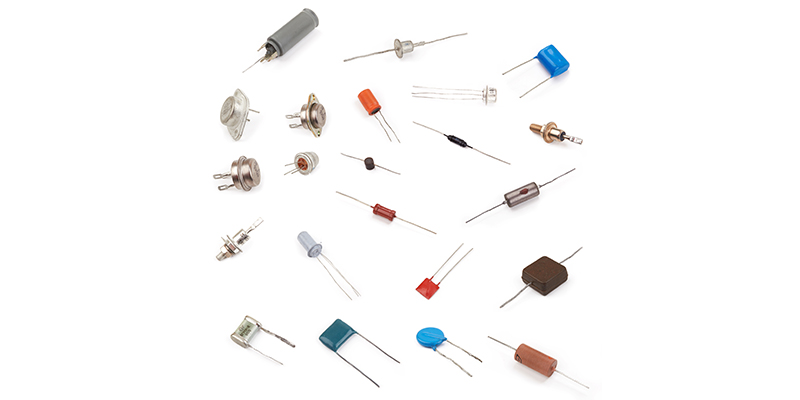What is a Capacitor?
A capacitor is an essential passive electrical component used to store energy electrostatically in an electric field. Capacitors are widely utilized in electronic circuits to manage energy flow, filter signals, and stabilize voltages. Their ability to charge and discharge quickly makes them indispensable in applications ranging from power supply systems to signal processing in precision instruments.

Types of Capacitors
Capacitors come in various types, each suited for specific applications. Some of the common types include:
- Ceramic Capacitors
Known for their small size and reliability, often used in high-frequency circuits and timing applications.
- Electrolytic Capacitors
Larger capacitance values, suitable for filtering and energy storage in power supplies.
- Tantalum Capacitors
High stability and reliability, used in low-voltage circuits and space-constrained designs.
- Film Capacitors
Excellent for precision applications due to their low loss and high stability over a wide range of frequencies.
Key Factors When Selecting High-Performance Capacitors
When choosing capacitors for precision instruments or high-frequency circuits, several critical factors must be considered to ensure optimal performance:
- Dielectric Material
The dielectric material plays a crucial role in determining a capacitor’s performance. Capacitors with stable dielectric materials such as C0G/NP0 ceramics are highly recommended for applications that require minimal capacitance drift and high reliability. These are commonly used in frequency-sensitive circuits and precision measuring instruments.
- ESR (Equivalent Series Resistance) and ESL (Equivalent Series Inductance)
Low ESR and ESL are vital for capacitors used in high-frequency circuits. These parameters affect the efficiency and speed of energy transfer, making capacitors with low ESR/ESL ideal for RF circuits, signal processing, and filtering applications.
- Temperature Stability
For environments with varying operating temperatures, selecting capacitors with a low temperature coefficient is essential. This ensures that the capacitance value remains consistent, preventing performance degradation due to temperature fluctuations. Capacitors with excellent temperature stability are used in automotive electronics, aerospace, and industrial control systems.
Applications of Capacitors in Various Fields
Capacitors are used across numerous fields and industries, including:
- Power Supplies: Electrolytic capacitors are commonly used to filter and smooth voltage in power supply systems.
- Signal Processing: Ceramic capacitors are often utilized in RF circuits and analog signal processing to filter noise and stabilize signals.
- Precision Instruments: High-stability capacitors like film or C0G/NP0 ceramics are critical in precision measurement tools and frequency-sensitive applications.
- Energy Storage: Supercapacitors are used in renewable energy systems and electric vehicles for rapid energy storage and discharge.
Conclusion
Selecting the right capacitor for high-performance and precision applications requires careful consideration of dielectric material, ESR, ESL, and temperature stability. Capacitors play an integral role in energy management, signal filtering, and ensuring the reliability of electronic circuits. By understanding the types and key selection factors, engineers can optimize their designs for better performance, reliability, and longevity in various applications. |






